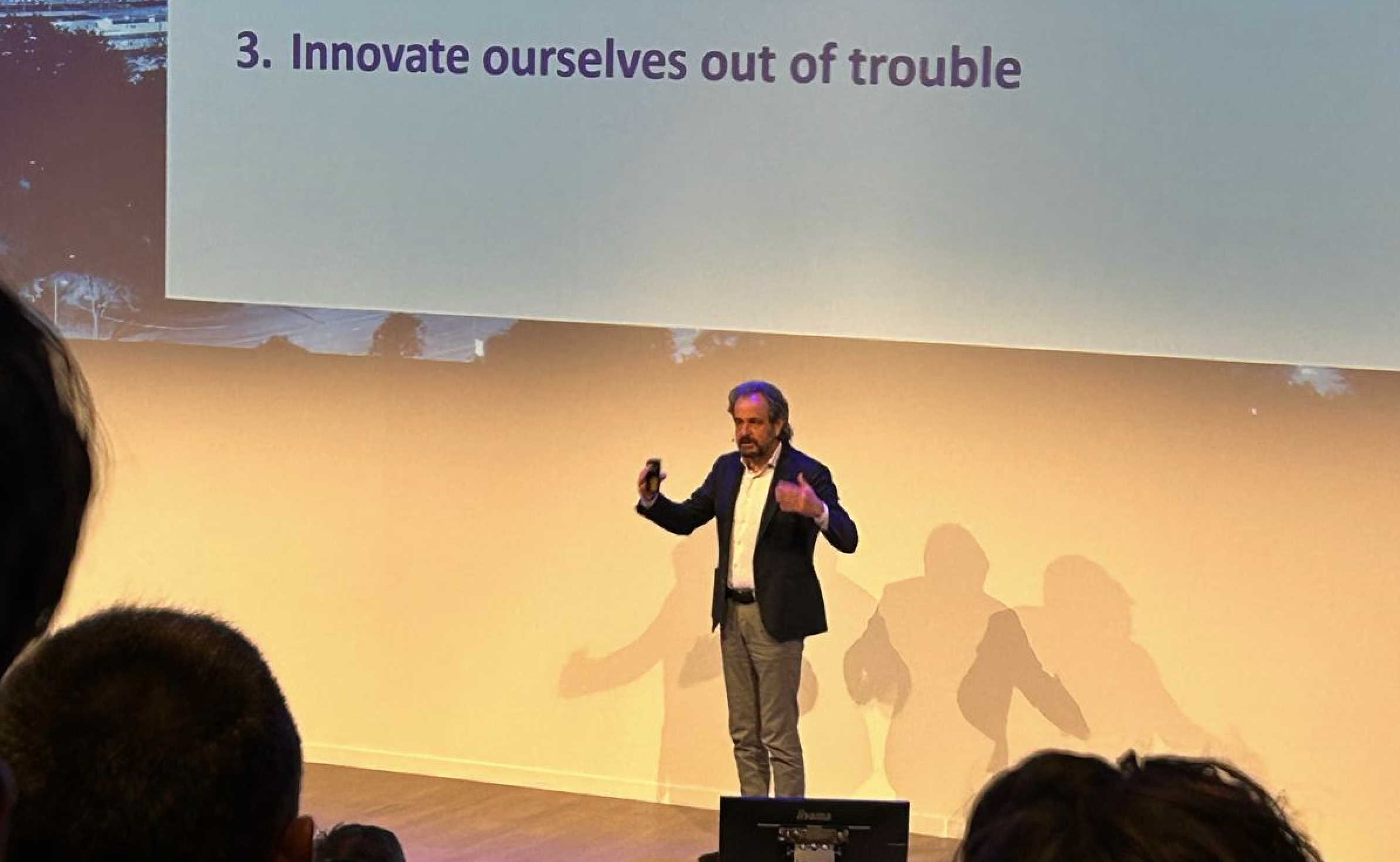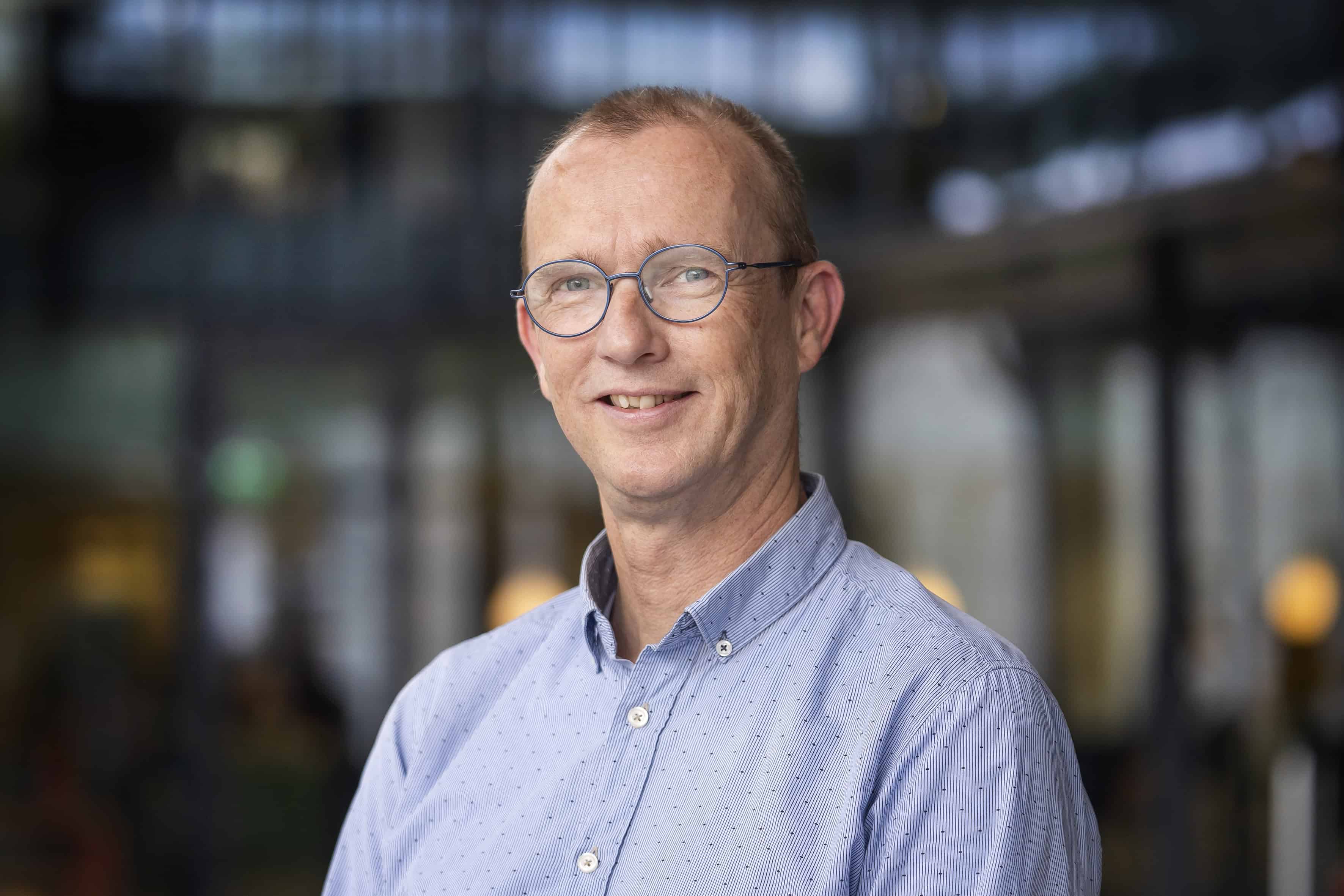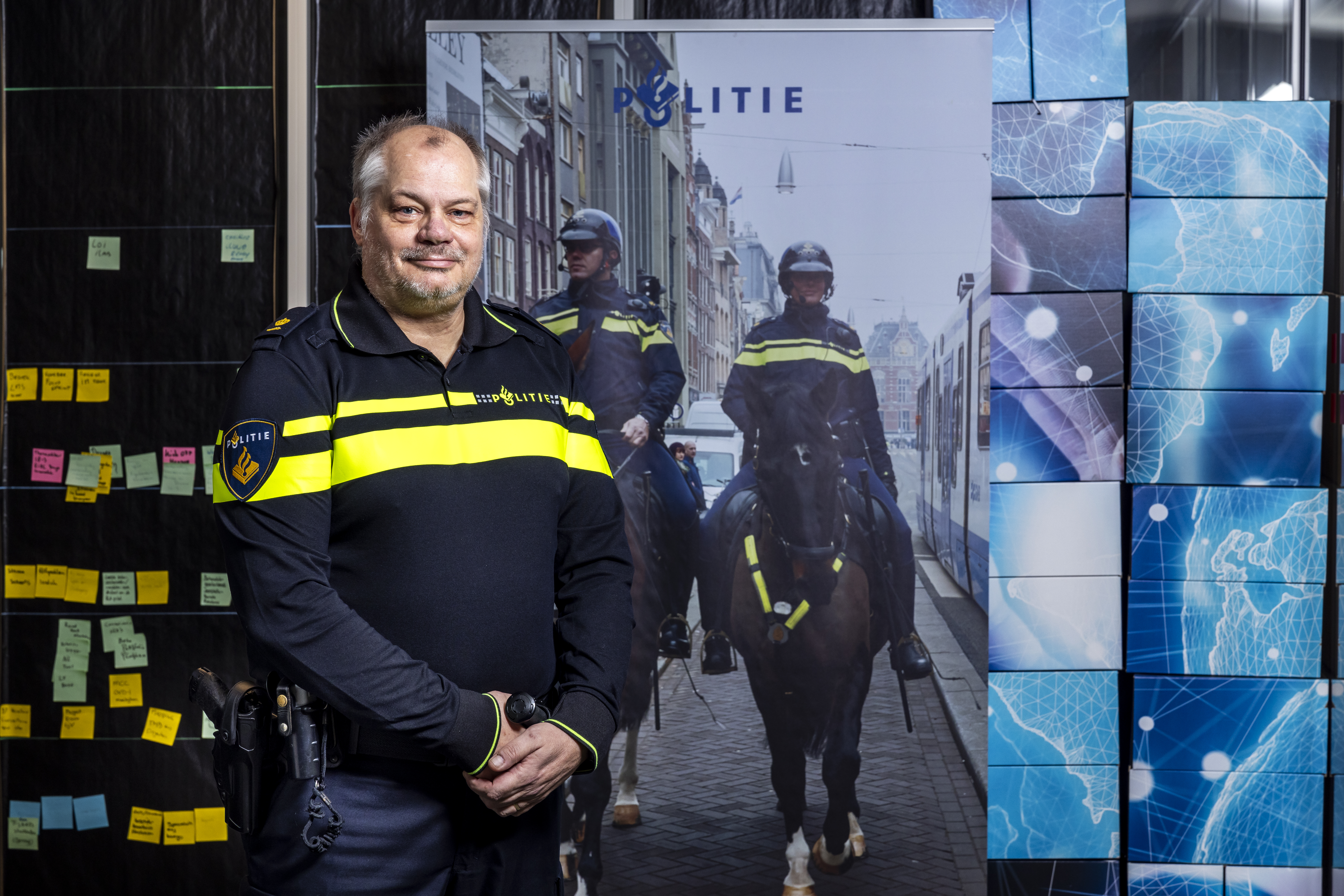
He just visited India for the third time in a year. Andre Dekker, clinical physicist and professor of Clinical Data Science at Maastricht University, Maastro Clinic, and the Brightlands Institute for Smart Society (BISS), spends a lot of time on the road with his team to build the infrastructure for the health train, which has been included as a best practice in the government’s Strategic Action Plan on Artificial Intelligence. Using data as cure to fight an overburdened healthcare system.
Dekker uses the train as a metaphor to make it clear that you don’t necessarily have to store data in one location to release it for a request for healthcare. You can actually send a request for healthcare as if it were on a train travelling past data centers (for example, in Indian hospitals), picking up information. In just a few minutes, the “train” picks up all of the relevant knowledge while ensuring that the data remains anonymous and stays at the source. This prevents ethical and legal hairsplitting about the exchange of privacy-sensitive information. Dekker estimates that it can take between five and ten years before the train traffic really gets going.
Over BRIGHT PEOPLE
Om de wereld van morgen een stukje mooier, schoner en beter te maken zijn BRIGHT PEOPLE onmisbaar. In deze serie interviewen we iedere maand een boegbeeld van de Brightlands Campussen. Deze rasechte innovators vertellen over hun missie en de manier waarop zij die willen bereiken.
Lees hier de andere afleveringen van deze serie.
Proton therapy
According to Dekker, AI can help doctors and patients make better choices when it comes to the treatment of cancer, diabetes, cardiovascular diseases, bowel diseases and Alzheimer’s. In order to do this, AI has to try to predict a patient’s future based on data or algorithms. What is the expected outcome if treatment A or treatment B is chosen? “Humans and by extension, doctors, are very bad at predicting the future but AI is able to do this,” says Dekker from his office in Maastricht. “After all, many more factors can be weighed in their prediction. At the Maastro Clinic, we irradiate cancer patients using very expensive therapy. This proton therapy costs around 50,000 Euros, five times more than normal radiation therapy. Does this treatment really produce better outcomes for this patient? They have expensive machines in India, but many people cannot afford the treatment. Can it be less expensive to use a different device? We are using AI to try to predict which treatment will have a certain outcome.”
Nerds
Born in Eindhoven, Andre Dekker, now a father of four, became a physicist at Twente University of Technology. Both his parents are engineers, and his father worked for Philips. “I come from a nerdy family,” he grins. “Both of my sisters are also engineers. We were at my parents’ recently, where it was yet another celebration of nerdiness.” He went to Maastricht to become a clinical physicist, a field that involves hospital technology, from lasers to radiation devices. He then earned his doctorate in cardiac surgery (artificial hearts), and joined the radiotherapy department. André quickly became head of clinical physics, and was also responsible for IT and technology. When the department was split up, he chose IT. “We’re an academic institute so we also want to do research in IT. You need data to do this. In 2009, even though it wasn’t yet called AI, the question still was: how can we better learn which choice to make from the data we have? He has been a professor of clinical data science since 2015. “At Maastro, we believe that data is our core business.”
There is of course also an ethical side to data collection. “Yes,” says Dekker. “AI can be very stigmatizing and also affect your autonomy. If AI tells you to quit smoking and you don’t, does this create problems for you? Does this mean you won’t get life insurance? These kinds of issues are already in play; we have to make choices about who gets a heart transplant and who doesn’t. This is a problem that has always existed in healthcare. AI won’t do anything to change that.”
AI can read a mammogram better than a radiologist. AI can check skin cancer or automatically screen all of the tissues in a scan. And it’s available 24/7
Andre Dekker
Skepticism
“The more you know about a patient, the more accurately you can predict what might happen to this person,” Dekker says. But is this something a patient really wants? “AI can never take over a human conversation. If you have a prediction via AI, you know what the literature says and what the guidelines are, but the doctor always checks to make sure this is in line with what the patient wants.” And yet, there is still a lot of skepticism among physicians. “Something I hear often is will AI replace me as a doctor? Yes, this is possible. AI can read a mammogram better than a radiologist. AI can check skin cancer or automatically screen all of the tissues in a scan. And it’s available 24/7. This may seem like a threat to someone’s profession, but the truth is that AI actually takes over all of the routine (and some might say, boring) tasks, and this allows doctors to concentrate on more interesting things. We read about the shortages in the healthcare sector every week in the newspaper. It’s important to automate, and this will help.”
Another critique is that doctors don’t want to lose their autonomy. Dekker understands this. “It may sound harsh, but it’s really just a matter of time. The younger generation has a very different attitude about this. Their thinking is: if I never have to beat another mammogram again in my life… If AI turns out to be better than a human, are we going to teach a human to do it? Studies show that doctors are not very good at predictions. If you ask a doctor: ‘How long does this patient have to live?’ then you might as well toss a coin to find out the answer. AI is there to help doctors. People expect machines to be perfect, and say things like, ‘If the AI isn’t perfect, I’m not going to use it. Of course it’s not perfect; you can’t predict exactly when someone is going to die. Besides, that would be creepy. But better than the doctor. It’s a difficult discussion.”

Science fiction
Andre Dekker knows he is very much at the vanguard in this field. And the fact that robots equipped with AI take over the world in science fiction movies doesn’t really help. “This is an image I have to fight. Look, Teslas are also equipped with AI, but what people don’t understand is that there’s not just one AI system, but thousands. One AI looks to see where the traffic lights are. Another looks to detect where the lines on the road are. The next AI sees something and asks, ‘Is this a dog or a human?’ Teslas are chock full of AI tools that are all very good at one specific thing. We can develop an AI that can really help a patient population. However, if you enter the wrong patient in the system, the AI is going to make mistakes. AI will never replace doctors.”
What good is data from, say, India to Dutch patients? “You learn from the differences, which is why data from India can be very useful. They have a different lifestyle in India; half of the population are vegetarians, for example. If you want to know if cancer progresses differently in a vegetarian, you should go to India. They use other treatments there that are much cheaper. We tend to overtreat many people but we can’t go back because no one will accept that. How do you find out that a cheaper, simple treatment is just as good? Just look at what they do in other countries.” It also works the other way around. “They can use our data to determine which patients should get the proton treatment.”
Triage
Dekker doesn’t see that many differences between how a doctor works and how AI works. “A doctor is someone who has gained an enormous amount of knowledge from the literature and practice. This information is also data. AI is just a bit more extreme; it can view the data for ten thousand patients all over the world at a single glance.
AI is applied daily in hospitals. “Take Maastro now, for example; radiology, pathology, and other departments all use AI to do things they don’t want to do or they outsource tasks to AI and then perform checks. For example, AI can provide an immediate indication, based on scans, that triage is necessary and that the patient must be given priority status, otherwise they would have to move to the back of the line.”

One million Euros
The first treatment using AI to predict a patient’s future is already here. “And this prediction determines whether treatment with proton therapy will have an effect or not. In the computer, a simulation for classical radiation and one for proton radiation are both input in the AI, which calculates the difference in side effects. The AI determines whether this patient will receive proton therapy. Even if the doctor pounds the table with his fist, or you get a million Euros from China – this has also happened – the AI has the deciding vote. This provides model- or AI-based grounds for treatment, and is objective. Patients accept this, too. What the AI is actually saying is that proton therapy doesn’t make much sense for you. Or: we would rather give your treatment slot to someone else who stands to derive more benefits from the treatment. This is where gains can be made, in my opinion, because it means you are making a more cautious decision. All of the data from the proton treatment is then put back into the model, to ensure the model continues to improve.”
Andre Dekker works in Heerlen one day a week at what he calls the “Brightlands AI campus”. He is involved at the campus through BISS. “We are trying to combine activities in this area in Heerlen. What’s so interesting about Brightlands is that we are close to industry. The challenge is to figure out how to access data at large and small companies in order to develop AI. You don’t want to be in the business of selling data, since that’s against the law. We do want a company like Philips to develop AI systems that help us in the healthcare sector.”








